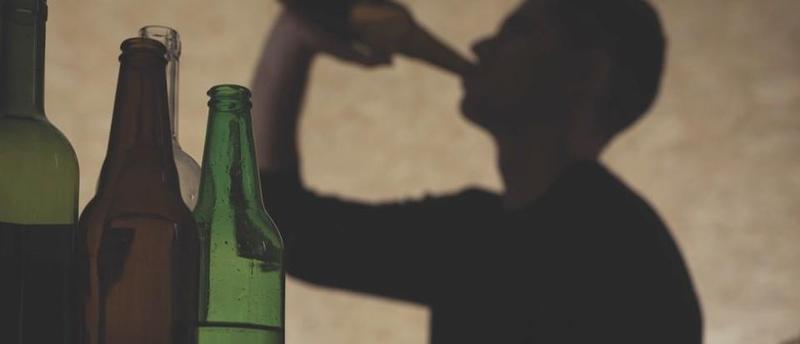MDMA therapy might be used to treat alcoholism
MDMA therapy might be used to treat alcoholism
Preliminary study indicates that the drug outperforms conventional therapies in preventing relapse. We talk to Dr Ben Sessa, adolescent and adult addictions psychiatrist at Imperial College London and the University of Bristol.
Advertisement
How did the research come about?
As a psychiatrist working with children and adolescents, I spent years working with abused and maltreated children. Then I moved into adult addictions, and realised that adults in their 30s, 40s and 50s with cocaine, opiate and alcohol addictions are the same cohort of grown-up children. Almost all have experienced childhood trauma.
I knew MDMA therapy was being used to treat PTSD successfully, and I saw adult addictions as ‘PTSD plus drug’. Alcohol misuse is a major public health concern in this country. The obvious thing to do, in my opinion, was an MDMA therapy study for alcohol use disorder. We got independent funding from a philanthropist donor, and we were away.
What happens in a typical treatment programme?
First, patients undergo medical detox, then in the first week of finishing the detox they enter an eight-week course of weekly psychotherapy sessions – most of them non-drug sessions.
On weeks three and six, interspersed with non-drug sessions, they have an MDMA-assisted psychotherapy session. The session lasts all day and then they stay in the facility overnight before being seen again the next day.
Read more news interviews:
What dose of the drug are the patients given?
Initially 125mg, then a further 62.5mg two hours later. They do this on two occasions, during weeks three and six of the course.
How does the MDMA help with the therapy sessions?
MDMA reduces the fear response. This allows for safe recall of traumatic memories that the patient would normally avoid. This allows them to fully engage in psychotherapy, and to reflect upon, challenge and eventually resolve past traumas.
How safe is the treatment?
The dangers are very low indeed. We’re not talking about ecstasy tablets, we’re talking about clinical MDMA. This is not like taking it in a nightclub where you don’t even know what you’re taking. They’re in a hospital setting with a doctor, a nurse, a therapist.
We monitor their blood pressure, heart rate and temperature every half hour. They stay all day, then they sleep over in the therapy centre and we see them the next morning. We telephone them every day for a week, and then we see them every week for 10 weeks, then we continue to follow them for up to nine months. They have blood tests and ECGs before and after the treatment.
The risks are reduced to an absolute minimum. It’s actually a remarkably safe drug, much safer than, for instance, the psychiatric medications I prescribe to people on a daily basis.
What sort of success rate have you had with the treatment?
Well, firstly, this is an open-label pilot study. There’s no control group, there’s no placebo. So we can’t really make inferences about treating alcoholism, because it might not be the drug at all – it might just be the wonderful therapist! You can’t make a formal, scientific statement about that.
It’s primarily a safety intolerability study. We’re basically looking at whether or not the drug is safe and can be tolerated. And they tick all the boxes in that way. The patients are tolerating it completely, and there have been no adverse reactions or physiological problems at all. So, that’s the main purpose of the study.
Now, of course, we can look at the data. We have 12 people in the study at the moment. Two have relapsed back to the levels of drinking they came in with, five are completely dry, and then there’s about another five who have had one or two drinks, but not gone back to the full level of drinking – they wouldn’t satisfy the diagnosis of alcohol use disorder.
By that rate, we’ve got 10 people cured and two returned to alcohol use. If you compare that to the current best treatment which is rehab, detox rehab, AA [Alcoholics Anonymous], group therapy, individual therapy and so on, it completely blows that out of the water. With current treatment, after nine months about 70 per cent of people are back to full drinking again.
So we can’t really say anything formally, as I said. But the people who have been on the study have certainly done really well compared to people who haven’t.
Could the same method also be used to treat other addictions and conditions?
Yes. In many ways MDMA can be seen as a non-specific adjunct to psychotherapy. Most addictions, probably except nicotine, are trauma-based. MDMA is an excellent tool to assist trauma-focused psychotherapy.
What next steps do you have planned for the research?
We now plan to carry out a randomised controlled study, using a placebo group alongside an active MDMA group, in order to test the efficacy of MDMA-assisted psychotherapy.
Recreational MDMA and ecstasy are illegal Class A drugs. Possession can get you up to seven years in prison; supplying can get you life imprisonment.
Be the first to post a message!
